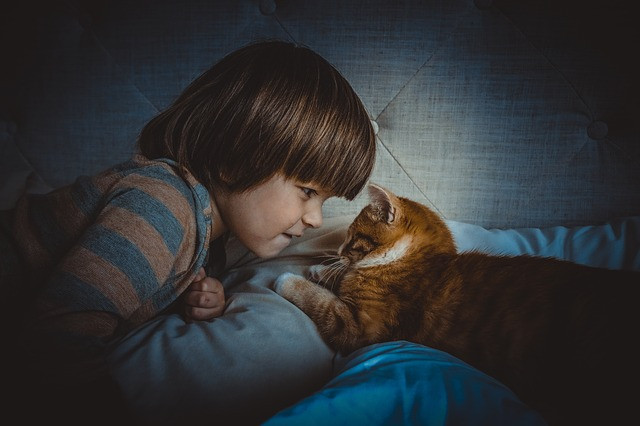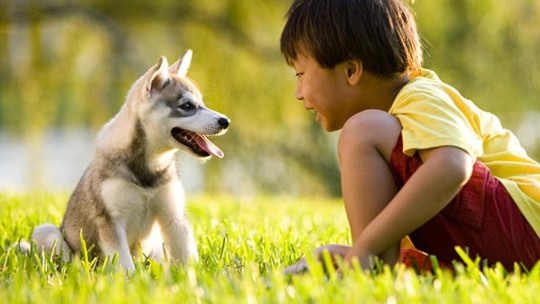
Are you thinking about having a pet? Do you have doubts about whether it is the most convenient for your children?
The responsibilities that come with caring for a pet
The decision to have a pet at home must be carefully analyzed because of the amount of responsibilities it entails: keeping an eye on food, water, bathing, vet appointments, taking him for a walk, giving him affection.
But on many occasions parents doubt the convenience of having pets at home. Not only because of the above, but also because of the doubt whether it will be beneficial for your children, especially if they are small. Their concern is not so much focused on the responsibilities that come with caring for an animal, but rather their fear that their children will not understand that it is a small animal and, therefore, will leave it abandoned or will not collaborate in its care.
Minimum age?
On this point it is important to mention that It is at the age of 4 when children are ready to establish a true love relationship with their “faithful friend.” Before that age it may be difficult for the child to fully understand the implications of having a pet at home, which does not mean that they cannot have a pet at home before that age, but it will require constant supervision and preparation. especially with the little animal.
Generally, when parents have grown up with pets in the house, it is easier for them to help their children live with pets. However, it is an extremely interesting and emotional process when you really love animals and we want to provide them with a home and our unconditional company.

Points to take into account when considering having a pet at home
Below, we have decided to put together some tips and observations to help those parents who are deciding to bring home a new family member. Here you have some of the benefits that occur in children who live with their pet
1. Self-esteem
The presence of a pet is like that of a faithful friend who accepts and loves you just as you are, ultimately.and children experience that unconditional love which in turn increases security in themselves and their environment.
2. Responsibility
Children understand in a very pleasant and receptive way the importance of fulfilling certain responsibilities for the well-being of their new friend: take care of him, bathe him, feed him, take him for a walk or play with him, are tasks that he does with pleasure for his friend. It is also interesting that, as parents, we take advantage of the situation to promote these types of values in our children.
3. Social skills
In a relaxed space of mutual acceptance, children learn to interact not only with their pet, but with children who are attracted to their “friend”, thus being a simple means to overcome childhood fears. In addition to this, physical activity increases, through walks, ball games, even within the homes themselves, which promotes a decrease in stress and an increase in the feeling of tranquility and joy.
4. Discipline
Knowing how to implement it, Having a pet at home is an excellent opportunity to promote discipline at home, since the child must teach and at the same time respect basic rules of coexistence. For example: he can teach you where to do his business and the times, times to eat and go to sleep, but at the same time he must respect the pet’s space while he eats, give him his space to rest, among others.
5. Expression of emotions
In a calm, trustworthy and welcoming space for the child, you learn to express affection, be careful in your treatment and easily understand the expressions of non-verbal communication. For example, children learn to identify when the pet is sick or scared, as well as developing intuition and empathy.
6. Family union and cohesion
There is no doubt that the presence of a pet involves all members of the family. Animals are usually very welcoming, tender, playful and friendly and have the ability to easily attract the attention of family members. Therefore, over time everyone becomes involved in its care, being on many occasions considered another member of the family nucleus
7. Broad-mindedness
Sometimes sharing the care space at home with the pet It is positive when it comes to helping many children better assimilate the arrival of a little brother
Teaching and educating in a conducive environment
Many of the benefits that children who take care of their pets obtain are determined by the way the parents treat the animals. In this article, benefits are mentioned based on a loving, responsible, close relationship with animals. In no way do we intend to humanize the influence of these pets, but rather place them in an important space within the family constitution.
This allows for a closer, more emotional bond and therefore, obtaining psychological and emotional benefits such as those mentioned throughout the article.








